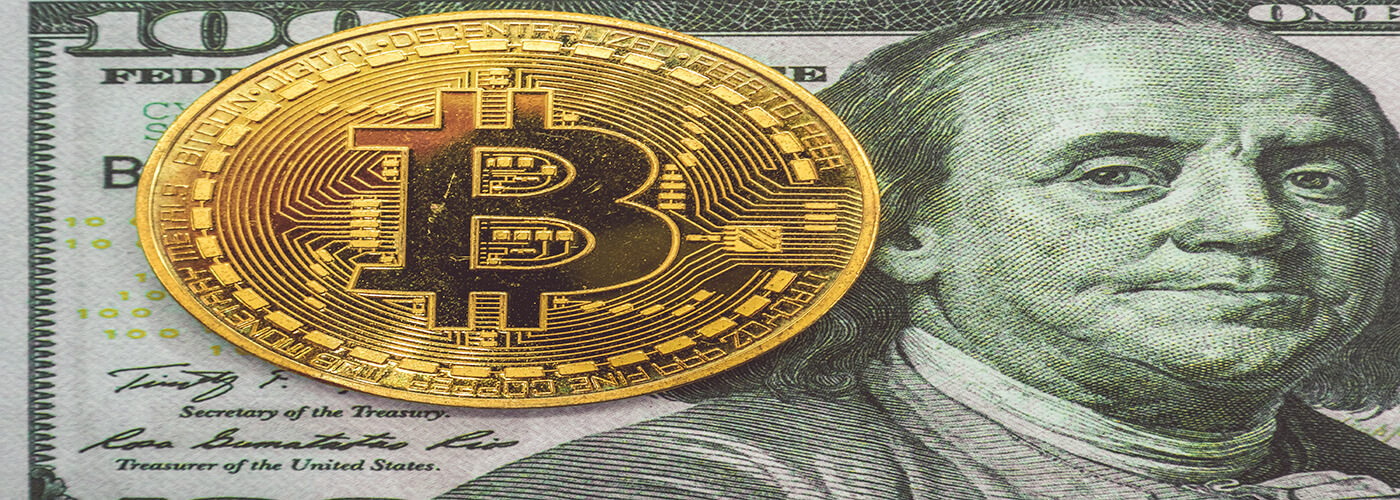Plus Early Signs of a Market “Taper Tantrum”
Welcome to your Sunday digest…my weekly breakdown of the things we’re thinking about and talking about in the Global Intelligence world.
First up this week, Shark Tank star Kevin O’Leary has been dropping some truth bombs about our financial future.
Like me, O’Leary was once skeptical about bitcoin and crypto, but in recent years he’s changed his tune and become increasingly bullish. Today, he reportedly holds 7% of his personal wealth in crypto and is a big proponent of decentralized finance.
DeFi, as decentralized finance is more commonly known, is all the financial services you and I know and use like saving, lending, insurance, etc., but offered on the blockchain using cryptocurrencies. Often, these services are conducted using stablecoins—cryptocurrencies that tightly track an underlying asset like the U.S. dollar.
Because cryptocurrencies operate using this ultra-secure, decentralized record-keeping system known as the blockchain, it eliminates the need for lots of middlemen, like bankers, to oversee the process. So, crypto financial-services firms are cheaper to run than traditional Main Street banks.
This is why crypto-banks can offer annual interest rates on savings of up to 12% (or sometimes even more). Compare that to the 0.01% you get at many traditional banks.
In a recent interview with Insider, O’Leary said that one reason he likes DeFi is because he’s sick of being “ripped off” by middlemen.
“This whole move into stablecoins and cryptocurrencies is to get rid of those middlemen. And we’re going to do it in the next three, four years,” he said. “They should find other jobs; maybe they should start shining shoes or something.”
This timeline—and language—sounds about right to me.
This is exactly what I have been writing to you about for months. Over the next several years, DeFi companies will need to work with government to create a solid regulatory framework. This process is likely to be painful for us and for people who work in banking, real estate, escrow agencies, etc. Once we get through this, however, DeFi will revolutionize virtually every corner of our financial lives.
Think of it this way: When you have two financial sectors, one charging high fees and offering 0.01% interest, and the other charging low fees and offering 12% interest, it’s not difficult to pick a winner.
Learn how to get started putting your money to work in DeFi with my DeFi special report and in the cover story for the July issue of our monthly Global Intelligence Letter.
***
In recent weeks, I’ve been writing to you about the likelihood that the Fed would seek to cut back, or taper, its current $120 billion in monthly bond purchases at some point in 2021.
Well, this past week, minutes of the Fed’s July 27-28 meeting were released and they revealed a growing consensus among America’s central bankers that the monthly purchases should be scaled back later this year.
Predictably, this news led to big dips in the Dow Jones and S&P 500. And this is just a taste of what’s to come.
Much of this free money the Fed is pumping out is ending up in the stock market, pushing valuations to irrational highs.
When the Fed begins tightening its free money tap, the market is going to have a fit, or what’s known as a “taper tantrum.” I predict stocks will drop significantly from current levels.
The Fed’s next meeting is set for Sept. 21-22, so it’s possible that the tapering could begin in October. My expectation, however, is that the Fed will hold off until after its Nov. 2-3 meeting.
Then all bets are off and the market bloodletting will begin.
***
Finally this week, a headline caught my eye about data-analytics company Palantir Technologies.
In its quarterly filing, the Denver-based company announced that it had bought $50.7 million worth of physical gold to guard against a black swan event. The company added that it is also accepting gold as payment. This follows on an announcement earlier this year when Palantir said it would accept bitcoin as payment.
Gray swans are potentially significant events that we can foresee but their probability is unknown, say the impact of the delta variant on the economy.
Black swans, on the other hand, are unknowable events…things we cannot foresee.
Speaking about the gold purchase, Palantir COO Shyam Sankar told Bloomberg that, “You have to be prepared for a future with more black swan events.”
This fits my bigger theme that this decade could prove momentously disruptive to society, governments, and fiat currencies.
Palantir’s concern about the black swan events is particularly significant. The company specializes in developing data-analytics software for clients like the Department of Defense and U.S. intelligence community. So essentially its business is helping the world’s top security organizations evaluate the most extreme kinds of risks.
The fact that it’s choosing to hedge the risks to its own bottom line with gold and bitcoin means that this is likely a good strategy for you and me as well. And that’s exactly what I recommend in our Global Intelligence Portfolio.
That brings us to the end of this week’s digest. Many thanks for being a subscriber. And if you have any feedback or questions, please reach out through the contact form on the Global Intelligence website here. I’d love to hear from you.
Enjoy the rest of your Sunday.

